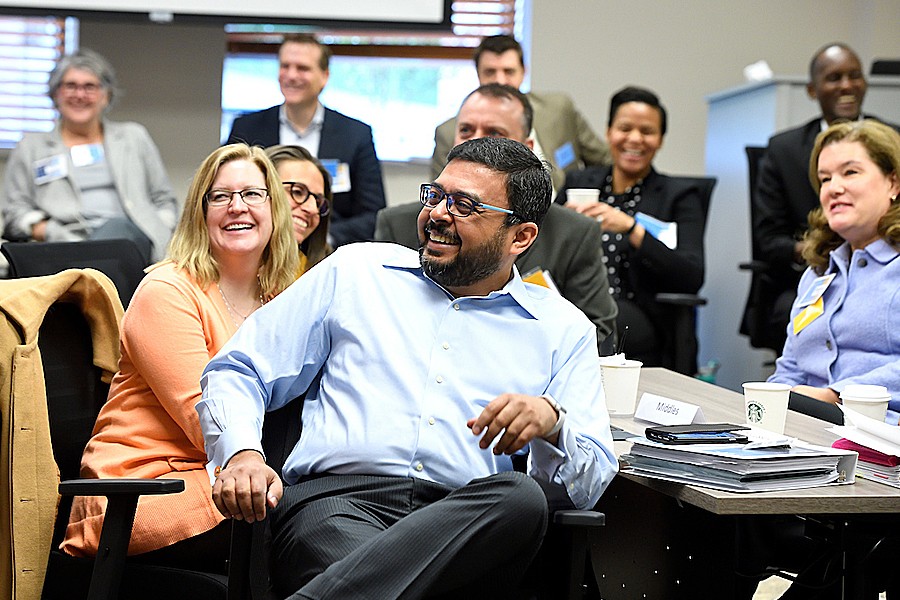On a recent Tuesday, 43 leaders from across Johns Hopkins University were gathered around tables on the Mount Washington campus, prodded into a conversation on diversity issues in the workplace. A visiting expert reminded the group members—who work in a wide variety of supervisory and manager roles—of their responsibility for "setting the culture" at work when it comes to inclusion.
"You're playing a big role in the way people perceive what is appropriate and inappropriate," said Sharon Fries-Britt, a professor of higher education at the University of Maryland, as participants dove into candid conversation of their personal experiences.
The group was convened as part of the university's Leadership Development Program, a dedicated yearlong initiative that gives emerging leaders the opportunity to meet regularly to learn from and collaborate with each other. The recently updated offering—which has trained hundreds of Hopkins leaders over its 21 years—serves as a resource to guide, train, and connect employees as they build and apply their leadership skills.
Participants are nominated by their departments or may choose to self-nominate. The 2017-18 cohort includes faculty and staff from all university divisions except the School of Medicine, which runs its own similar leadership program, and APL.
"At Johns Hopkins University, we value technical skills, excellence, and expertise. As individuals achieve greater success, they're often asked to take on more responsibilities and lead others," says Kathy Forbush, who heads up JHU's Talent Management team, which implements the program. "The LDP offers a space for knowledge sharing and coaching, as these leaders deal with similar issues guiding teams and big projects."
Leadership takes many forms across the program's participants, who represent all corners of Johns Hopkins, from athletics and publishing to nursing and information technology. Some are steering development projects or campaigns, some are guiding labs or teams. But the LDP focuses on the place where they all intersect: as leaders facing common challenges and expectations.
In addition to sharing their experiences with peers, participants glean wisdom from talks by both senior-level leaders at Johns Hopkins and outside experts. Lectures on the schedule this year included "Leading Change in the University," "Building a Diverse and Inclusive Organization," and "University Finance."
The program also promotes individual reflection through self-assessments, work with executive coaches, and integrating projects and goals from participants' own workplaces.
Current participant Cecilia Moreira, associate director of facilities for the Sheridan Libraries, says that when leading a team, "you often don't get a chance to look introspectively, and say, What do I need to work on, what do I need to develop? When you pull yourself away from that outward focus, it can be very eye-opening."
Many also value the connections they form—both professionally and socially—with Hopkins colleagues whom they may not have met otherwise. Paul Huckett, who directs the Center for Learning Design within the Whiting School of Engineering, says he expects these connections to carry on well beyond the program itself. "Hopefully I can reach out to these folks for counsel on things I'm working on, and projects I'm developing in the future," he says.
Posted in News+Info, Tools+Tech








